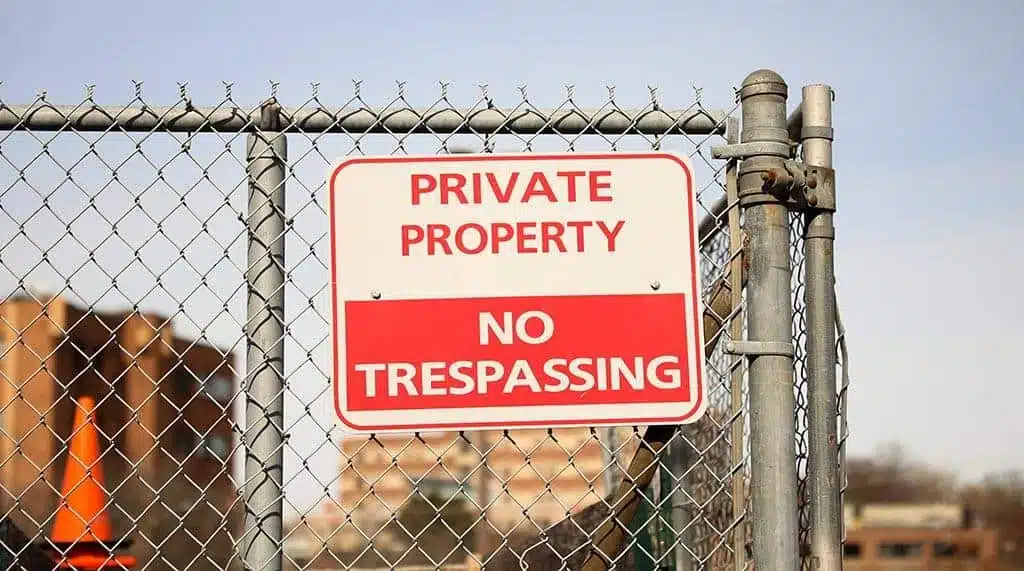A large number of the crimes committed in and around Denver are property crimes, which can impact individuals, business, and entire communities alike. From vandalism to burglary, these offenses can have far-reaching consequences for both victims and perpetrators. In this post, we will deep dive into trespassing offenses – what they involve, the penalties defendants can face, and the most common defenses against trespassing conviction.
What Is Criminal Trespassing in Colorado?
Criminal trespassing occurs when an individual unlawfully enters or remains on another person’s property without permission or consent. This label can be applied to a wide range of scenarios, from trespassing on private land to unlawfully entering a dwelling or vehicle. Colorado law breaks criminal trespassing into three degrees with increasing penalties based on the severity of the crime.
Understanding the Degrees of Trespass
First-Degree Trespass
This classification applies if you:
- Unlawfully enter someone’s home
- Unlawfully enter someone’s motor vehicle intending to commit a crime
This is the most severe form of trespass, since homes and cars are highly likely to have people present, increasing the chances of causing someone harm. Note that even if the car is unlocked, you can still be charged with first-degree trespass if you entered with mal-intent.
Second-Degree Trespass
Second-degree trespass occurs if you unlawfully enter property that is NOT someone’s home OR you unlawfully enter a vehicle with no intention of committing a crime.
For example, if a homeless man climbs into an unlocked car for a place to sleep, this would be considered second-degree trespass. This person DID illegally trespass on someone else’s property, but did not intend to commit a crime once inside the car.
Third-Degree Trespass
The least severe form of this crime, third-degree trespass typically involves entering property that is NOT a dwelling and does not obviously bar people from entering (i.e. with a fence or enclosure of some kind).
Penalties for Trespassing in Colorado
First-Degree Trespass
- On Someone’s Dwelling – class 6 felony, 1-18 years in prison, one year of mandatory parole, and/or $1000-$0,000 in fines
- Other Crimes – class 1 misdemeanor, up to 364 days in jail, up to $1000 in fines
Second-Degree Trespass
- Unlawful Motor Vehicle Entry – class 2 misdemeanor, up to 120 days in jail and/or up to $750 in fines
- Agricultural Land with Criminal Intent – class 4 felony, 2-6 years in prison, fines of $2000-$500,000
- Other Crimes – petty offense, up to 10 days in jail, up to $300 in fines
Third-Degree Trespass
- Agricultural Land with Criminal Intent – class 5 felony, 1-3 years in prison, $1000-$100,000
- Other Crimes – petty offense, up to 10 days in jail, up to $300 in fines
Trespassing vs. Burglary: What’s the Difference?
While both trespassing and burglary involve knowing and unlawful entry onto property, burglary involves the additional element of intent to commit a crime while on the premises. Burglary is considered a separate and more serious offense than trespassing, often carrying felony charges and harsher penalties.
Intent to commit a crime can be hard to prove. When cases fall within a gray area on this matter, an experienced property crime lawyer can often persuade the prosecutor to offer a plea bargain for trespass charges, as these are much less severe than burglary charges.
Is Trespassing a Violent Crime?
While trespassing itself is not a violent crime, since it doesn’t involve direct physical harm to an individual, it can escalate into more serious offenses. For example, if other criminal acts are committed while on the property, such as theft, vandalism, or assault, you may be charged with a violent crime, even if the trespassing in and of itself was not a violent act.
Trespass and Domestic Violence
Trespass and domestic violence incidents commonly go hand in hand. In situations where trespass occurs at the dwelling of someone with whom the defendant has had an intimate relationship, the charges can become more serious.
If your trespassing case involves domestic violence, it’s essential to discuss your situation with an experienced attorney like those at MBS Law to ensure your rights and interests are safeguarded throughout the legal process.
Common Defenses for Trespassing Charges
Some of the most common defenses against trespassing charges in Colorado include the following:
- The property owner gave implied or express consent for the defendant to enter the premises
- You accidentally entered private property (i.e. the trespassing was unintentional)
- You did not intend to commit a crime (can be used to lessen penalty severity)
If you are facing trespass charges in Denver or a surrounding county, turn to a property crime attorney for assistance as soon as possible. An expert legal team can help you craft the best possible defense to protect your freedom and your future.



